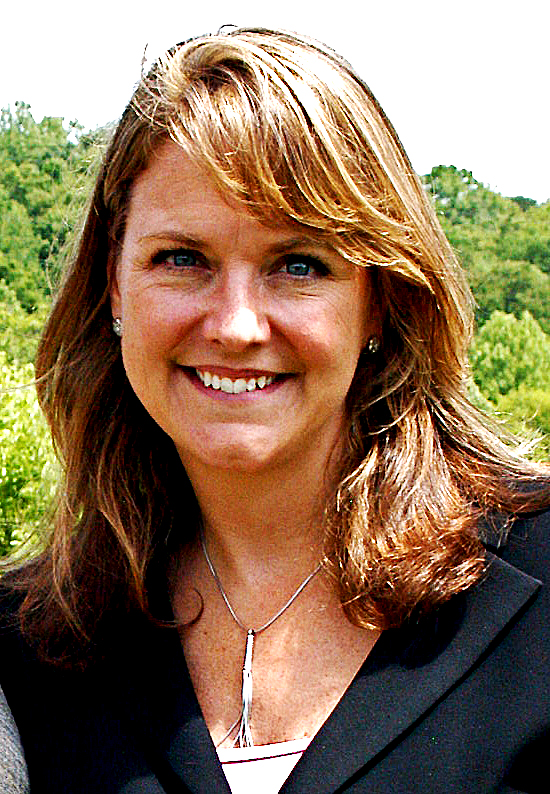Before becoming executive director of the Roanoke-based Saint Francis of Assisi Service Dog Foundation, Virginia’s largest service dog organization, Cabell E. Youell practiced corporate law in Roanoke. “I started working with Saint Francis as a volunteer,” she explains.
“They asked me to help them set up their Prison Pup program … where inmates at a medium-security prison in Bland County raise and train puppies for us [in the initial stages of training]. I have worked in a prison clinic in law school, so I had experience working with prison bureaucracy . . . I was very intrigued by the idea. After that was established, they asked if I would join the board. Then [one thing] kind of led to another.”
Just recently, Youell received the YWCA’s Women’s Achievement Award for business. It was quite a shock for her. “I didn’t know that I was nominated but some people associated with Saint Francis decided to nominate me,” Youell says.
Because Saint Francis is a 501 (c) (3) non-profit organization, she feels the award was significant. “A lot of people don’t think of non-profits as necessarily a business [but] at Saint Francis we do. You do have to run it as a business, follow a lot of the same models, use a lot of the same methods to be effective. Here we raise and train service dogs for people with disabilities – but our dogs are free. So we actually raise money from donations for everything that we do.”
A 1991 graduate of the University of Virginia, Youell spent five years working in Washington, D. C., before attending Washington and Lee University’s School of Law. She won the Wilfred J. Ritz Award for Excellence in the Alderson Legal Assistance Program, served as the Head Honor Advocate, and became a member of the Omicron Delta Kappa Society.
Graduating cum laude in 1999, Youell joined the commercial real estate and land use department of Williams Mullen in Richmond as an associate. In 2001, she married Cooper Youell and moved to Roanoke, joining the corporate section of Flippin, Densmore, Morse & Jessee (now LeClair Ryan). In December 2003 she left the legal profession to take over her present position at Saint Francis.
Despite its name, Saint Francis is a secular organization, devoid of any religious affiliation. The service dogs Saint Francis trains help children and adults stricken with a broad range of disabilities (autism, cerebral palsy, joint and muscular diseases, neurological disorders, Parkinson’s disease, rheumatoid arthritis, spinal core injury, etc.)
Youell points out that the service dogs they train are not the same as guide dogs that assist the blind. “A lot of people think that they are similar. We only work with people who have physical disabilities. We actually don’t train dogs for blind people. The training is actually quite different.” Saint Francis teaches dogs to perform such tasks as picking up items, opening and closing doors, switching lights on and off, helping with laundry, carrying light bags, and getting items out of the refrigerator.
The training process lasts two years, and usually begins when a dog is roughly eight weeks old. Some of the dogs receive training at a volunteer’s home, with Saint Francis providing the necessary instructions and equipment, and the volunteer trainer bringing the puppy to weekly classes.
Dogs can also receive training in the aforementioned Prison Pup program in which inmates who are part of the “Honor Dorm” program raise dogs. “The men there have lots of time,” Youell says, “They’re able to really do a lot of work with these dogs to bring them along. Our dogs, overall, have improved in quality since they’ve had the Prison Pup program.”
The program, Youell observes, is mutually beneficial to the inmates and Saint Francis as it gives inmates, “something to do that’s worthwhile where they feel like they’re making a positive impact in the world.”
When the dog is 12-15 months old it begins working with a professional trainer. The training is normally completed by the time the dog is two and-a-half years old. The animal is then paired with a partner who has been on a waiting list and the two begin working together.
“It’s quite a long procedure,” explains Youell, “[and] about half the dogs can’t do it. These dogs are ‘career changed,’ and placed at homes as pets.” Once the partner and dog have been matched, the partner recertifies the animal every two years. When the dog can no longer function as a service animal, it is allowed to remain with the partner as a pet, and a successor dog is furnished.
Saint Francis mainly uses golden retrievers and Labrador retrievers as service dogs. These breeds, Youell says, “generally have a very nice temperament—easy to teach. They are tall enough to be able to reach light switches and strong enough to be able to hold open commercial doors. They’re also perceived by most people as friendly. That’s important—we’re not trying to scare people away.”
Saint Francis of Assisi Service Dog Foundation has just opened a state of the art facility featuring 12 kennels, able to accommodate 24 dogs in advanced training. The kennels feature high ceilings, abundant natural light, music, excellent air flow, radiant heat in the floors, individual covered outdoor runs, shared run areas, a waste removal system, and surfaces engineered “for maximum cleanability without becoming slippery,” says Youell. These facilities, she adds, “are the result of years of research – and are some of the best on the east coast.”
By Melvin E. Matthews, Jr. [email protected]

